Some film directors start out knowing that all they really want to do is direct. Others, for various reasons, have started in an array of other departments and moved into direction along the way at some point. So, as a series of posts, I’m going to compile a list for your viewing pleasure of directors who started out being known for something other than directing. Now, of course, many directors wear multiple hats, but the ones I list in this post and the ones following will be only directors who were prominently known for a role other than directing BEFORE they became directors. To start the series, we’ll begin with editors turned directors:
THE EDITORS:
 Robert Wise (1914-2005) – Before winning Oscars for West Side Story and The Sound of Music, among nominations and accolades for many of his other films, Robert Wise was an editor. Some of his editing credits include 1939’s The Hunchback of Notre Dame and The Magnificent Ambersons, Orson Welle’s infamously cut classic. However, probably his best known editing credit is for the film that constantly ranks among the best ever made, Orson Welles’s 1941 classic Citizen Kane. Interestingly enough, out of Wise’s eight Oscar nominations, his first was for editing Citizen Kane.
Robert Wise (1914-2005) – Before winning Oscars for West Side Story and The Sound of Music, among nominations and accolades for many of his other films, Robert Wise was an editor. Some of his editing credits include 1939’s The Hunchback of Notre Dame and The Magnificent Ambersons, Orson Welle’s infamously cut classic. However, probably his best known editing credit is for the film that constantly ranks among the best ever made, Orson Welles’s 1941 classic Citizen Kane. Interestingly enough, out of Wise’s eight Oscar nominations, his first was for editing Citizen Kane.
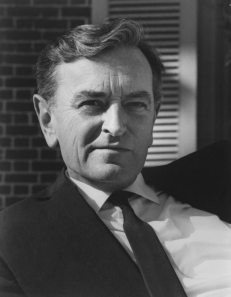 David Lean (1908-1991) – Before being at the helm of such epic masterpieces as The Bridge on the River Kwai, Lawrence of Arabia and Dr. Zhivago, Lean was working in the cutting room. He started cutting his teeth in newsreels in the early 1930s before moving into cutting features such as Pygmalion and Pressburger and Powell’s 49th Parallel. By the time he moved into directing in the early 1940s, Lean had cut some two dozen features. As a fitting ode to his former career, Lean would edit his final picture A Passage to India in 1984, ending one of the most impressive careers in cinema.
David Lean (1908-1991) – Before being at the helm of such epic masterpieces as The Bridge on the River Kwai, Lawrence of Arabia and Dr. Zhivago, Lean was working in the cutting room. He started cutting his teeth in newsreels in the early 1930s before moving into cutting features such as Pygmalion and Pressburger and Powell’s 49th Parallel. By the time he moved into directing in the early 1940s, Lean had cut some two dozen features. As a fitting ode to his former career, Lean would edit his final picture A Passage to India in 1984, ending one of the most impressive careers in cinema.
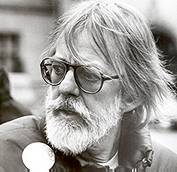 Hal Ashby (1929-1988) – Ashby started in the editorial department and would eventually only end up as primary editor on six features. Though his quantity as an editor was not high, he was awarded an Academy Award in 1967 for cutting Best Picture winner In the Heat of the Night. Norman Jewison, the director of the film, would go on to let Ashby direct a picture he passed on, 1970’s The Landlord. What followed would be, in my opinion, one of the most underrated careers of any director in mainstream cinema. During the 1970s, Ashby would direct a slew of well-received motion pictures which includes Harold and Maude, Shampoo, The Last Detail, Bound For Glory, Coming Home and Being There. Though drugs and irrationality would end his career essentially in the 1980s, his film output the decade before is testament to a unique auteur of American cinema.
Hal Ashby (1929-1988) – Ashby started in the editorial department and would eventually only end up as primary editor on six features. Though his quantity as an editor was not high, he was awarded an Academy Award in 1967 for cutting Best Picture winner In the Heat of the Night. Norman Jewison, the director of the film, would go on to let Ashby direct a picture he passed on, 1970’s The Landlord. What followed would be, in my opinion, one of the most underrated careers of any director in mainstream cinema. During the 1970s, Ashby would direct a slew of well-received motion pictures which includes Harold and Maude, Shampoo, The Last Detail, Bound For Glory, Coming Home and Being There. Though drugs and irrationality would end his career essentially in the 1980s, his film output the decade before is testament to a unique auteur of American cinema.
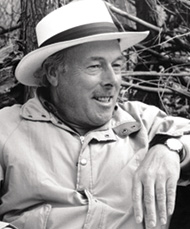 John Glen (1932- ) – Glen is probably best known for directing more James Bond films than any other, having directed all 5 Bond movies produced in the 1980s (For Your Eyes Only, Octopussy, A View to a Kill, The Living Daylights and License to Kill). Before being at the top of the super spy franchise, Glen started in editing. His editing credits, outside of three prior Bond movies (On Her Majesty’s Secret Service, The Spy Who Loved Me and Moonraker), included British films Murphy’s War and The Sea Wolves, among many others. To add to his already impressive resume, he also served as 2nd Unit Director on several of the films he edited including being in charge of the thrilling ski chase at the beginning of The Spy Who Loved Me.
John Glen (1932- ) – Glen is probably best known for directing more James Bond films than any other, having directed all 5 Bond movies produced in the 1980s (For Your Eyes Only, Octopussy, A View to a Kill, The Living Daylights and License to Kill). Before being at the top of the super spy franchise, Glen started in editing. His editing credits, outside of three prior Bond movies (On Her Majesty’s Secret Service, The Spy Who Loved Me and Moonraker), included British films Murphy’s War and The Sea Wolves, among many others. To add to his already impressive resume, he also served as 2nd Unit Director on several of the films he edited including being in charge of the thrilling ski chase at the beginning of The Spy Who Loved Me.
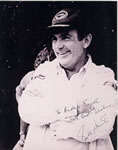 Peter R. Hunt (1925-2002) – The Bond series liked to grow their directors from the inside it seems, as On Her Majesty’s Secret Service director Peter R. Hunt was also an editor on the series before turning to directing. Hunt, whose credits as an editor started in 1954, cut such Bond classics as Dr. No, Goldfinger and From Russia with Love. In addition to George Lazenby getting an opportunity of a lifetime upon Connery’s departure from the series, Hunt was able to move up as well in 1969 with Her Majesty’s Secret Service. It would be his only Bond film as director, though he did continue a directing career until 1991.
Peter R. Hunt (1925-2002) – The Bond series liked to grow their directors from the inside it seems, as On Her Majesty’s Secret Service director Peter R. Hunt was also an editor on the series before turning to directing. Hunt, whose credits as an editor started in 1954, cut such Bond classics as Dr. No, Goldfinger and From Russia with Love. In addition to George Lazenby getting an opportunity of a lifetime upon Connery’s departure from the series, Hunt was able to move up as well in 1969 with Her Majesty’s Secret Service. It would be his only Bond film as director, though he did continue a directing career until 1991.
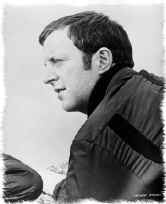 Anthony Harvey (1931- ) – English Director/Editor Harvey began as an assistant editor in the early 1950s. During the decade he moved to full editor and in the 1960s edited several iconic films including a collaboration with famed director Stanley Kubrick on Lolita and Dr. Strangelove: Or How I Learned to Stop Worrying and Love the Bomb. He served also served as editor on his debut film as a director, Dutchman. His second film would become his most well-known and revered, 1968’s The Lion in Winter. For this film, Harvey would receive an Academy Award nomination for Best Director and both leads, Peter O’Toole and Katherine Hepburn, would receive nominations. Hepburn would go on to win (her third of four). Harvey has continued a sporadic career as a director with his last film to date being 1994’s This Can’t Be Love.
Anthony Harvey (1931- ) – English Director/Editor Harvey began as an assistant editor in the early 1950s. During the decade he moved to full editor and in the 1960s edited several iconic films including a collaboration with famed director Stanley Kubrick on Lolita and Dr. Strangelove: Or How I Learned to Stop Worrying and Love the Bomb. He served also served as editor on his debut film as a director, Dutchman. His second film would become his most well-known and revered, 1968’s The Lion in Winter. For this film, Harvey would receive an Academy Award nomination for Best Director and both leads, Peter O’Toole and Katherine Hepburn, would receive nominations. Hepburn would go on to win (her third of four). Harvey has continued a sporadic career as a director with his last film to date being 1994’s This Can’t Be Love.
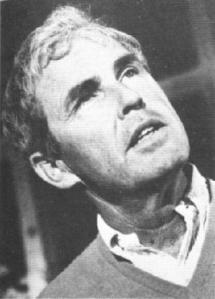 Robert Parrish (1916-1995) – Parrish’s career began first as an actor while still an adolescent. He made appearances in several John Ford films, as well as the Oscar-winning All Quiet on the Western Front and as one of the newspaper boys in Charlie Chaplin’s City Lights. Through his work with Ford, Parrish became an assistant director and later, and more prominently, an editor. His editing credits include: The Battle of Midway, December 7th, Grapes of Wrath (assistant), Body and Soul and All the King’s Men. He won an Oscar for Best Film Editing for Body and Soul in 1947 and was nominated for All the King’s Men in the same category as well. In the 1950s, Parrish moved into directing with such films as Cry Danger, The Purple Plain and Fire Down Below, as well as working in television for such shows as The Twilight Zone (check the Twilight Zone Master Guide above for episodes he worked on). He continued directing through the 1960s, being one of the five directors of the James Bond spoof Casino Royale (1967), and into the mid-1970s. He had one credited film for a documentary in the 1980s, entitled Mississippi Blues. Parrish died in Long Island, N.Y. at the age of 79.
Robert Parrish (1916-1995) – Parrish’s career began first as an actor while still an adolescent. He made appearances in several John Ford films, as well as the Oscar-winning All Quiet on the Western Front and as one of the newspaper boys in Charlie Chaplin’s City Lights. Through his work with Ford, Parrish became an assistant director and later, and more prominently, an editor. His editing credits include: The Battle of Midway, December 7th, Grapes of Wrath (assistant), Body and Soul and All the King’s Men. He won an Oscar for Best Film Editing for Body and Soul in 1947 and was nominated for All the King’s Men in the same category as well. In the 1950s, Parrish moved into directing with such films as Cry Danger, The Purple Plain and Fire Down Below, as well as working in television for such shows as The Twilight Zone (check the Twilight Zone Master Guide above for episodes he worked on). He continued directing through the 1960s, being one of the five directors of the James Bond spoof Casino Royale (1967), and into the mid-1970s. He had one credited film for a documentary in the 1980s, entitled Mississippi Blues. Parrish died in Long Island, N.Y. at the age of 79.
Well, those are the ones I know of who began prominent careers as directors while first serving as editors. If you can think of more people to be added to this compilation who began their careers as editors before turning to directing, then please comment and I will review and add to the list!

Well, the Coen Brothers started their careers s assistant editors and they have edited all of their films themselves (uncredited) so they would probably fit this list as well
Scorcese, also.
[…] For many, what makes film a unique artform from all others IS the editing. Furthermore, many famous directors “made their bones” as editors and credit that experience as the reason why they can direct. And while many top directors […]
[…] For many, what makes film a unique artform from all others IS the editing. Furthermore, many famous directors “made their bones” as editors and credit that experience as the reason why they can direct. And while many top directors switch […]